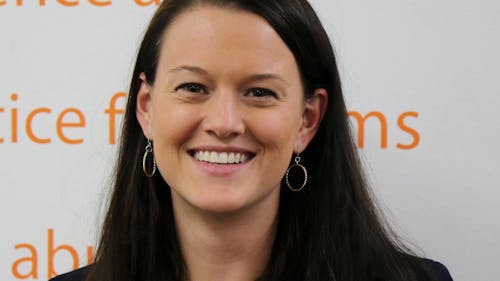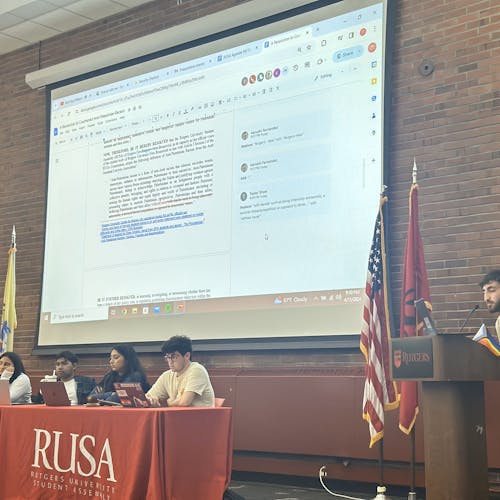Rutgers researcher studies effects of pandemic on domestic violence survivors

Amanda M. Stylianou, director at Rutgers University Behavioral Healthcare, recently conducted a study, which demonstrated how domestic violence survivors have been negatively affected by the coronavirus disease (COVID-19) pandemic in accessing resources such as childcare, transportation and financial necessities.
Domestic violence helplines recorded more calls and needs of their services after the start of the pandemic, which has been referred to as the Shadow Pandemic, according to the UN Women.
Stylianou was the lead investigator of the study, which focused on how the COVID-19 pandemic affected domestic violence survivors after they had left emergency shelters.
She said there were 83 participants, all who were over 18 years of age. All participants were survivors of domestic violence and had just moved into the emergency shelter after experiencing primarily physical violence, she said.
The study was spread out in three stages: The participants were interviewed the first week when they had just entered into the shelter, then once again a few months later and then once more a couple months later after which most survivors had left the shelters, Stylianou said.
She said she found that survivors in the third stage, who had left the domestic violence shelters, faced numerous barriers to building their independence in the new communities where they were relocated.
She said it was a common experience that when survivors were in the shelter, they had a certain safety net as support that was provided to them.
Shelters were also able to provide survivors with emergency assistance if they were facing financial difficulties, she said, but once survivors left the shelter programs and integrated into their new communities, they had trouble finding economic and social sustenance, which was impaired by the pandemic’s impact on community infrastructure.
“Some of the main struggles were finding employment to financially support them and their children, finding out child care arrangements or schooling facilities for their children and accessing financial necessities,” Stylianou said.
She said this has led to a situation where survivors must choose between poverty and homelessness or going back to an abusive home environment. Many survivors were forced to return to their abusive situations as they lacked other options or the financial support to settle elsewhere, according to the study.
Stylianou also said certain aspects of the survivor’s community help decrease the effects of abuse at home.
“For many people we often think of our family as a safety net. (But), when our family are the ones causing harm we have to think broader than that. We often know child abuse reports increase during the school year because children are outside the family and identify safe people in the school, who then tell a teacher or principal what is happening,” she said. “So really being able to have community connection is an opportunity for individuals experiencing violence or abuse to reach out, get help and get connected to resources. It is a critical opportunity for intervention”
Stylianou said there is a role to play for everyone despite their respective standing in society.
“As individuals, I keep reminding people to just reach out to people in your social network — connecting to your friends, connecting to family, connecting to community members — because that social connectedness is a major lifeline for those people experiencing violence or abuse,” she said.
Additionally, Stylianou said that voting is important because it allows individuals to participate in their government and advocate for more policy development that supports vulnerable populations.
Overall, she said that while the COVID-19 pandemic has caused the public to refocus on domestic violence, the issue has been ongoing and the nation should continue to support these survivors.
“These are not problems that are new, this has been around for a long time. There is a kind of pattern in the United States of a kind of national attention on the issue of domestic violence which rises and falls based on media attention. When we have a big domestic violence incident in the NFL, it becomes really important and then we do not hear about it for months,” Stylianou said. “We as a country need to get to a point where we see this as a continual problem that we want to fix ... and see what needs to be done not only in the immediate aftermath of violence but to prevent the violence from happening in the first place.”



